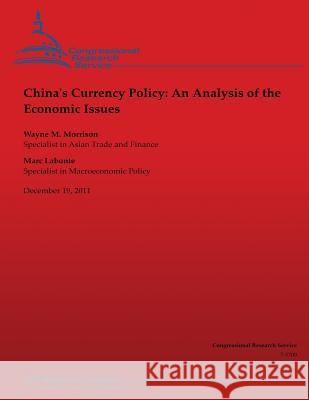China's Currency Policy: An Analysis of the Economic Issues » książka
China's Currency Policy: An Analysis of the Economic Issues
ISBN-13: 9781481849173 / Angielski / Miękka / 2012 / 48 str.
China's policy of intervening in currency markets to limit or halt the appreciation of its currency, the renminbi (RMB), against the U.S. dollar and other currencies has become an issue of concern for many in Congress. Critics charge that China's currency policy is intended to make its exports significantly less expensive, and its imports more expensive, than would occur if the RMB were a freely-traded currency. They contend that the RMB is significantly undervalued against the dollar and that this has been a major contributor to the large annual U.S. trade deficits with China and the loss of U.S. jobs in recent years. Several bills have been introduced the 112th Congress that seek to address the effects of undervalued currencies (which are largely aimed at China), including H.R. 639, S. 328, S. 1130, S. 1267, and S. 1619 (which passed the Senate on October 11, 2011). On the other hand, some analysts contend that China's industrial policies, its failure to adequately protect U.S. intellectual property rights, and its unbalanced economic growth model, pose more serious challenges to U.S. economic interests than China's currency policy. Some U.S. business groups have also expressed concern that U.S. currency legislation could aggravate U.S.- China commercial ties.
Zawartość książki może nie spełniać oczekiwań – reklamacje nie obejmują treści, która mogła nie być redakcyjnie ani merytorycznie opracowana.











